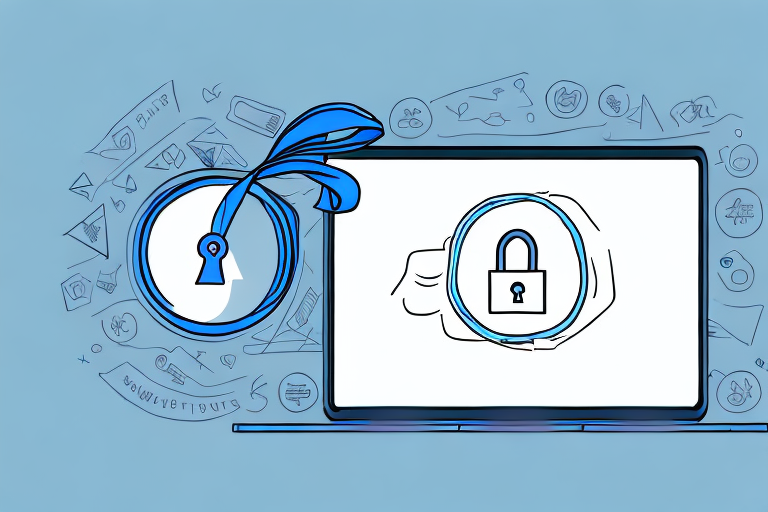In today’s digital age, where everything from shopping to banking is conducted online, it’s no surprise that estate planning has also made its way to the digital realm. Online wills are gaining popularity as more and more people are choosing the convenience and accessibility they offer. With the rise of technology, the concept of securing your legacy through online wills is becoming increasingly prevalent.
Understanding the Concept of Online Wills
Before diving into the benefits and potential drawbacks of best online wills, it’s important to understand what exactly an online will is and how it works.
An online will is a legal document that outlines how an individual’s assets and estate should be distributed after their passing. It is typically created and stored electronically, making it easily accessible and editable at any time.
Creating an online will offers a convenient and efficient way to plan for the distribution of one’s assets. Gone are the days of having to schedule appointments with lawyers and spend hours discussing the details of your estate. With just a few clicks, you can now create a comprehensive will from the comfort of your own home.

Online wills are created through various platforms and software specifically designed for this purpose. These platforms guide users through a step-by-step process, ensuring that all necessary information is captured accurately. Users are prompted to answer questions about their estate, beneficiaries, and any specific instructions they may have.
One of the advantages of using online will platforms is the flexibility they offer. Users can work on their wills at their own pace, saving progress and returning to it whenever they have the time. This eliminates the pressure of having to complete the process in one sitting, allowing for careful consideration of all aspects.
Once the online will is completed, it is usually stored securely on the platform. This means that it can be accessed and updated by the user whenever necessary. Additionally, some platforms offer the option to download the will as a PDF for offline storage, providing an extra layer of security and peace of mind.
It’s important to note that the legality of online wills may vary depending on the jurisdiction. While many countries recognize the validity of online wills, it’s always recommended to consult with a legal professional to ensure compliance with local laws and regulations.
Overall, online wills offer a modern and convenient solution for estate planning. They provide individuals with the ability to create and manage their wills easily, saving time and money in the process. However, it’s crucial to approach online wills with caution and seek professional advice to ensure that all legal requirements are met.
The Rise of Digital Estate Planning
Technology has had a significant impact on various aspects of our lives, and estate planning is no exception. The shift towards online wills can be attributed to several factors that have made digital estate planning more appealing to individuals and families.
One of the key factors driving the rise of digital estate planning is the advancements in technology that have revolutionized the estate planning process. Traditional methods of estate planning often involve handwritten wills or seeking legal assistance, which can be time-consuming and expensive. However, with the advent of online will services, individuals can now create their wills from the comfort of their own homes, saving both time and money.
But why are more people choosing online wills? Aside from the convenience and cost-effectiveness, online wills offer additional benefits that make them increasingly attractive to individuals looking to secure their legacy.
The Impact of Technology on Estate Planning
Advancements in technology have not only simplified our daily lives but have also transformed the way we approach estate planning. In the past, creating a will required extensive paperwork, multiple visits to lawyers, and lengthy discussions about the distribution of assets. This process often proved to be overwhelming and time-consuming for individuals and families.
However, with the rise of digital estate planning, technology has streamlined the entire process. Online platforms now offer user-friendly interfaces that guide individuals through the necessary steps to create a comprehensive will. These platforms provide templates, prompts, and explanations to ensure that nothing is overlooked.
Furthermore, digital estate planning tools allow individuals to easily update their wills whenever necessary. Life is ever-changing, and people’s circumstances can shift over time. With online wills, individuals can make modifications to their estate plans with just a few clicks, ensuring that their wishes are always up to date.
Why More People are Choosing Online Wills
In addition to the convenience and ease of use, online wills offer several advantages that make them an attractive option for individuals and families:
Accessibility: Online wills can be accessed from anywhere with an internet connection. This means that individuals can work on their estate plans at their own pace and from the comfort of their own homes. It eliminates the need for multiple visits to lawyers’ offices and allows individuals to take their time to carefully consider their wishes.
Cost-effectiveness: Traditional estate planning methods often involve hefty legal fees. Hiring an attorney to draft a will can be expensive, especially for individuals with complex assets or unique circumstances. Online will services, on the other hand, offer affordable options that provide the same level of legal validity.
Privacy and security: Online wills provide a secure and confidential environment for individuals to store their estate plans. These platforms employ advanced encryption and security measures to protect sensitive information, ensuring that individuals’ personal and financial details are kept safe.
Flexibility: Digital estate planning tools allow individuals to include specific instructions and wishes that may not be possible with traditional methods. For example, individuals can specify how they want their digital assets to be handled, such as social media accounts or online subscriptions.
Education and guidance: Online will services often provide educational resources and guidance to help individuals navigate the estate planning process. These resources can include articles, FAQs, and video tutorials that offer valuable insights into various aspects of estate planning.
The rise of digital estate planning is a testament to the power of technology in simplifying and democratizing an essential aspect of our lives. As more individuals recognize the benefits and convenience of online wills, it is likely that this trend will continue to grow, shaping the future of estate planning for generations to come.

The Benefits of Online Wills
Creating a will is an important step in ensuring that your wishes are carried out after your passing. In today’s digital age, online wills have become increasingly popular due to the numerous advantages they offer. Let’s explore some of the key benefits of online wills in more detail.
Convenience and Accessibility
One of the primary advantages of online wills is the convenience they offer. Traditionally, creating a will involved multiple appointments with lawyers, which could be time-consuming and inconvenient. However, with online wills, individuals can create their wills from the comfort of their own homes, at any time that suits them. This eliminates the need for scheduling appointments and allows for greater flexibility.
Furthermore, online wills are accessible from anywhere with an internet connection. This means that even if you are traveling or living abroad, your vital documents are never out of reach. Whether you need to make changes or updates to your will, you can do so easily and conveniently.
Cost-Effectiveness of Online Wills
Creating a traditional will through legal channels can be costly. Lawyers often charge hefty fees for their services, which can add up quickly. However, online will services often provide affordable options, allowing individuals to create legally binding wills without breaking the bank.
By opting for an online will, you can save money that would otherwise be spent on legal fees. This is particularly beneficial for individuals with straightforward estate planning needs who do not require extensive legal advice.
Security and Privacy Features
When it comes to creating a will online, concerns about security and privacy are valid. After all, you want to ensure that your personal and sensitive information is protected. Reputable online will platforms understand these concerns and incorporate stringent security measures to safeguard your data.
Encryption and password protection are commonly used to ensure that only authorized individuals can access your online will. This provides peace of mind to both testators and their beneficiaries, knowing that their personal information is secure.
In addition, online will platforms often have privacy features that allow you to control who can view and access your will. This ensures that your wishes remain confidential until the appropriate time.
Overall, online wills offer a convenient, cost-effective, and secure way to create and manage your will. With their accessibility and user-friendly interfaces, they have revolutionized the estate planning process, making it easier for individuals to protect their assets and ensure their loved ones are taken care of.

Potential Drawbacks of Online Wills
Legal Complexities and Challenges
While online wills offer convenience, they may not be suitable for everyone, particularly those with complex estate planning needs. Legal requirements and regulations vary from jurisdiction to jurisdiction, and online will services may not be able to accommodate all legal nuances. It’s important to research and understand the legal implications before opting for an online will.
Risks of Digital Storage
Storing digital documents can pose certain risks. In the case of online wills, it is crucial to choose a reputable and secure platform to minimize the risk of data breaches or loss. Offline backups should also be considered to ensure accessibility and preservation of the will in case of technical issues.
How to Create an Online Will
Choosing the Right Online Will Service
Before embarking on the journey of creating an online will, it is essential to select a reputable online will service. Research different platforms, read user reviews, and consider the security measures they provide. Look for platforms that offer user-friendly interfaces and comprehensive options that meet your specific estate planning needs.
Steps in Creating an Online Will
The process of creating an online will typically involves the following steps:
- Create an account or sign up with the chosen online will service.
- Enter personal and estate information as prompted by the platform.
- Designate beneficiaries and specify their respective shares and any conditions.
- Appoint an executor and provide any additional instructions or wishes.
- Review and edit the will as necessary.
- Save and store the final will securely, either on the platform or offline.
It is crucial to periodically review and update the online will as circumstances change, ensuring that it accurately reflects one’s wishes and evolving estate planning needs.
The shift towards online wills is a reflection of the digital transformation happening across various industries. As technology continues to advance, more individuals are embracing the convenience, accessibility, and cost-effectiveness of creating and managing their wills online. However, it is important to weigh the benefits against potential legal complexities and security risks associated with online wills. By understanding the concept, evaluating the advantages and drawbacks, and following the appropriate steps, individuals can make informed decisions regarding their legacy and secure their digital presence for generations to come.

